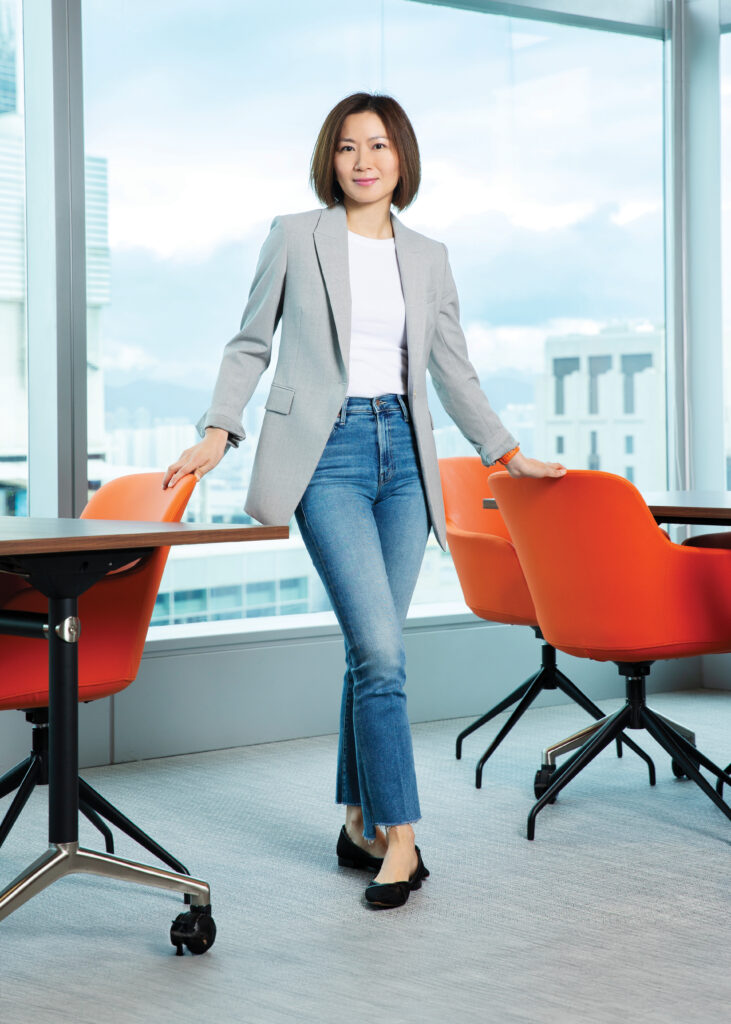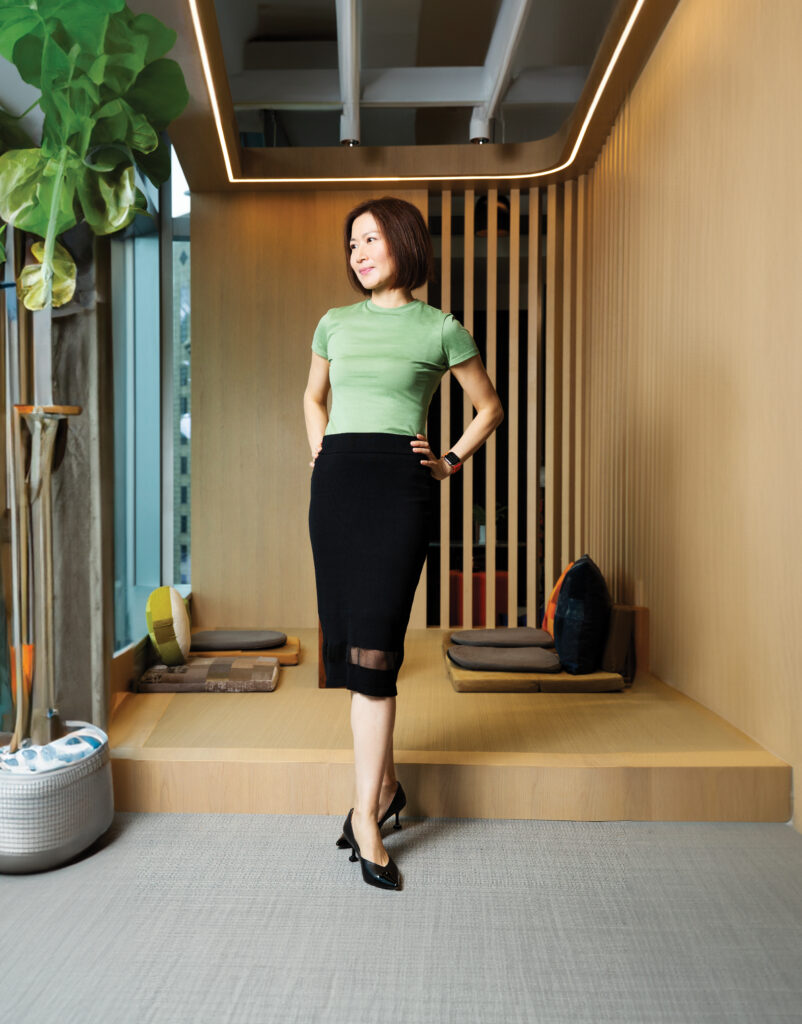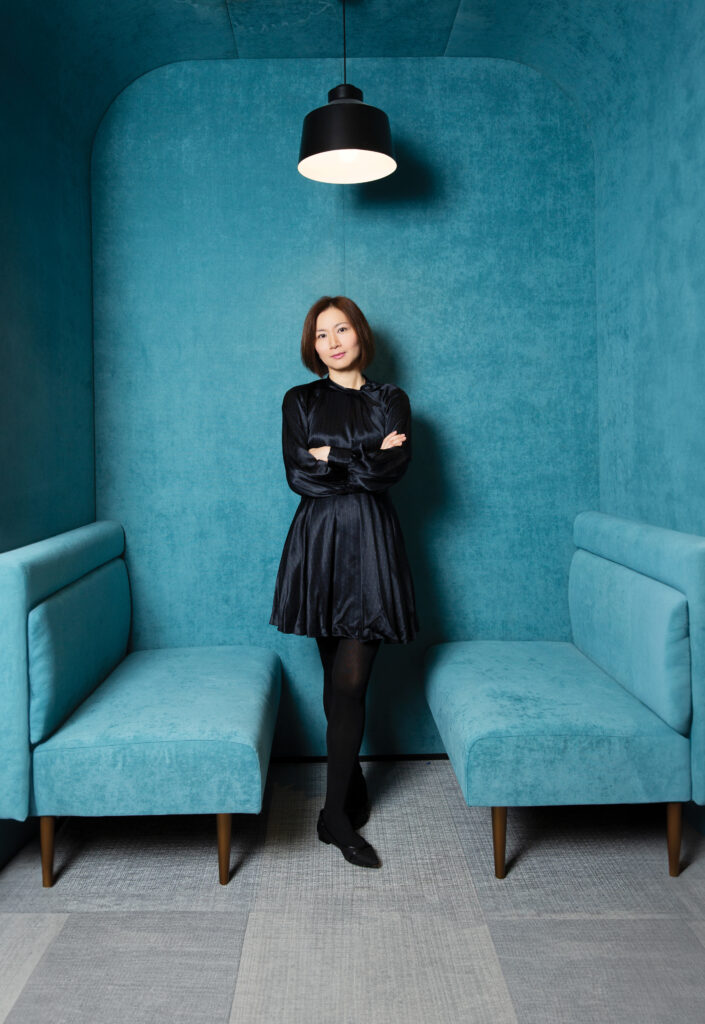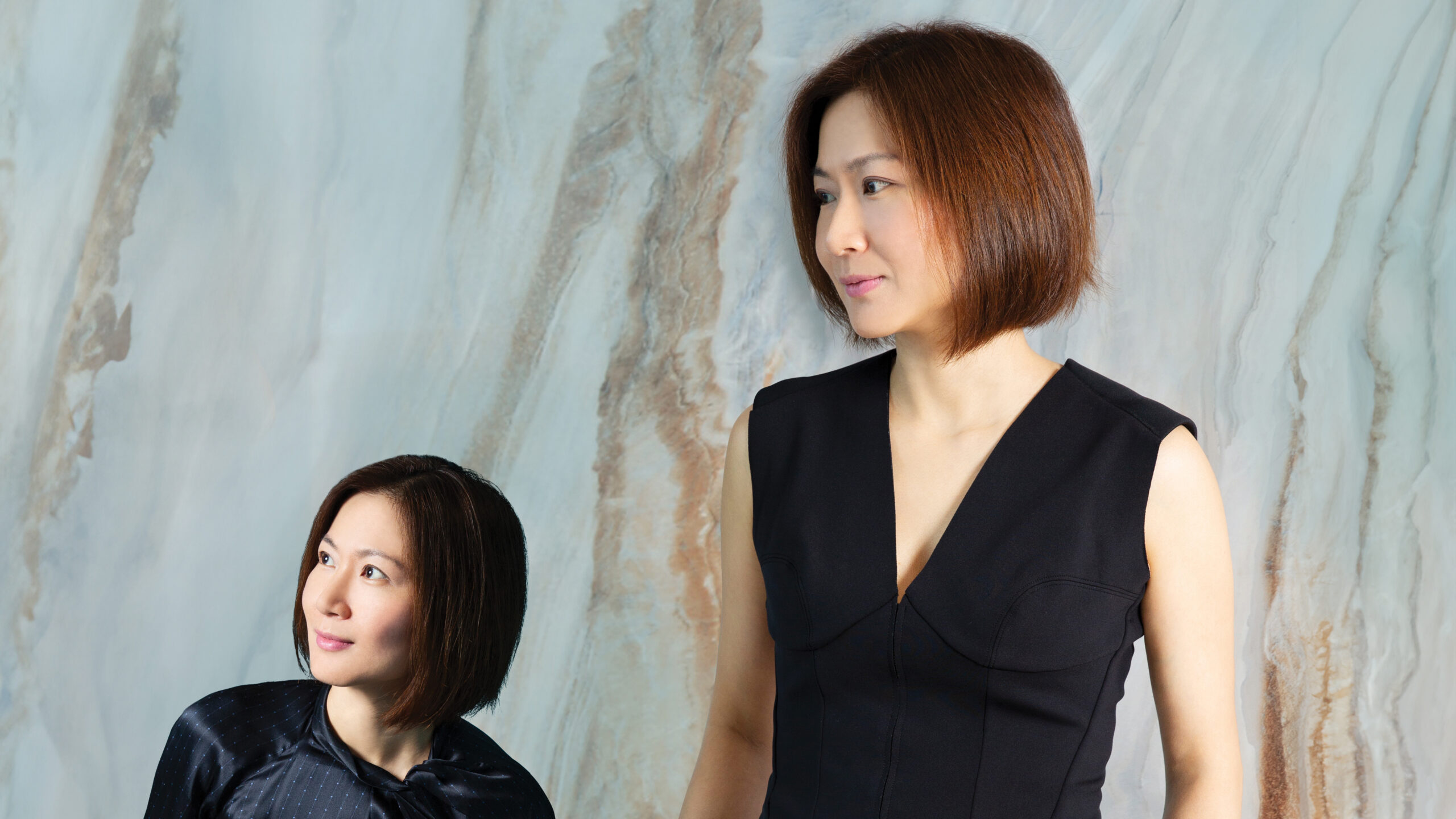For the Founder and Director of Arts for Good Foundation, a value-driven social enterprise established in 2020 to foster inclusion through the power of the arts, appreciating treasured moments comes top of the list.
“Time has always been the most beautiful thing in my life, personally or professionally. I always see things first on time value, and how things change,” she says as we meet at the recently opened ESG Innovation Hub in Central and contemplate life against the backdrop of superb city and harbour views. Time transcends materialistic worth as it can never be replaced, and this intangible aspect undoubtedly appeals to her altruistic nature. “I value quality time, quality connection, quality relationships, which are all my priorities,” she shares.
Sun has spent her own time wisely as she embarked on a “self-discovery path” through life. Her family in China had a great passion for sports and wanted her to start her career by working for the Beijing Olympics in 2008. Perhaps with this seed implanted in her mind, she pursued recreation and leisure studies at a university in Canada.
A deeper love
Her time spent in Canada fostered another, deeper interest: art. Though her early years had spawned a love of a “making culture”, art had never been considered a career, not even as a hobby. “I developed my deeper love [for art] in Canada; there were many international arts festivals and great museums that connected me with nature and communities’ stories that I grew up with,” she explains. “I started knowing and building connections with artists, some from Hong Kong as well.”

Her love of the arts blossomed over the years, but making it her career was never her first thought. She just kept searching for what made her feel fulfilled at each stage of her life, perhaps changing her perspectives and making new decisions. “I think life brings arts to me, or the other way round,” she says wistfully and rather philosophically.
Giving back
During her 12 years in Hong Kong, Sun has been involved in education. As a researcher at the Education University of Hong Kong and later the Hong Kong Academy for Gifted Education, she worked in programme evaluation and learned the theories that underpin it and how arts play a key role in education. She has also undertaken a multitude of voluntary and charity work. “Giving and serving others is important to me,” she says. “Someone once told me, ‘life has no meaning if we can’t serve others anymore’. I found it matters a lot to me.”
All of this work and life experience played an embryonic role in her Arts for Good social enterprise. From daily observations of people she met from diverse demographic backgrounds – including children and youths from subdivided housing, expat families and local school students – she would endeavour to understand the deep- rooted causes of social issues and imagine a different future.
Art in society
“Through Arts for Good, we bring new perspectives of looking at social issues and how we can sustainably and multidimensionally create differences through and with the arts,” she says, expressing her mission statement. The foundation aims to provide high-quality value-based and age- appropriate art viewing, art-integrated learning projects and community service experiences for students aged from 9 to 22 in Hong Kong. Children and youths – society’s future leaders – are the target and projects are organised throughout the year, all tailored to the students they serve, as well as meeting stakeholders’ needs.

More generally, she is a passionate advocate of the power of art in society. “The arts raise perspectives of how we perceive each other, and how we interact with each other. We look at art in a civic landscape; it builds communities and helps to find our commonalities and inspire connections,” she attests.
Agent of change
Sun believes the timing of her venture was spot on. “Compared to 13 years ago when I came to Hong Kong, I think young people are now seeking more than just a paid job. For example, they want career diversity, maturity of our cultural offerings, diversity of life choices; young people are more seeking meaning and purpose in life compared to a decade ago.”
She stresses that she does not feel there is a general deficiency in cultural learning and arts appreciation in Hong Kong; it is the relevancy and agency of this learning that are her prime considerations. Her enterprise has raised fresh viewpoints on the social power of art and brought with it a new definition of social inclusion.
“We are a change agent; we need to keep changing in order to meet the needs of the young people we serve together with our stakeholders. That is [one] reason why we wanted Arts for Good to be a social enterprise, not an NGO,” she says.
Common humanity
Her enterprise educates and advocates that young people be respectful of any differences in our communities and ethical in the treatment of others. Part of its mission is to foster common cultural identities for future generations, and engage children and youths to seek common humanity values and make positive changes together. She notes: “They are not told or taught by us or by any experts. They are the ones to tell their stories for their own future in Hong Kong. We are here to support and to facilitate.”
Arts for Good is possibly the first social enterprise to aim for sustainability goals through and with the arts in Hong Kong. “We have specific sustainable goals that we hope to achieve with our key stakeholders in a long timeframe,” she says.

Inspiring fellows
Having been accepted for the Singapore International Foundation Arts for Good fellowship last year, Sun gained deeper and broader insight into how art has helped people living in less developed countries and communities. “I heard many inspiring stories, like one of my fellows from Vietnam who is a young hip-hop dancer. His story of saving lives of street children through hip-hop dancing, and reducing the crime rate within his community is inspiring and touching,” she reveals.
Stories such as these have made her more aware of the privileges that come with living in Hong Kong. “There are many children and youths who have suffered from all sorts of challenges and even threats in this troubled world, which is just heartbreaking. We just need to do our bit to make it a better place,” she says with a natural warmth that radiates from deep inside her soul.
Having now found her own niche in the arts and social impact, would she recommend it as a career choice? Flashing a winning smile, she says: “I advocate career diversity and choices no matter what [a young person wants to do in life]. I advocate arts in a beautiful life and to see life as pieces of beautiful art.”



